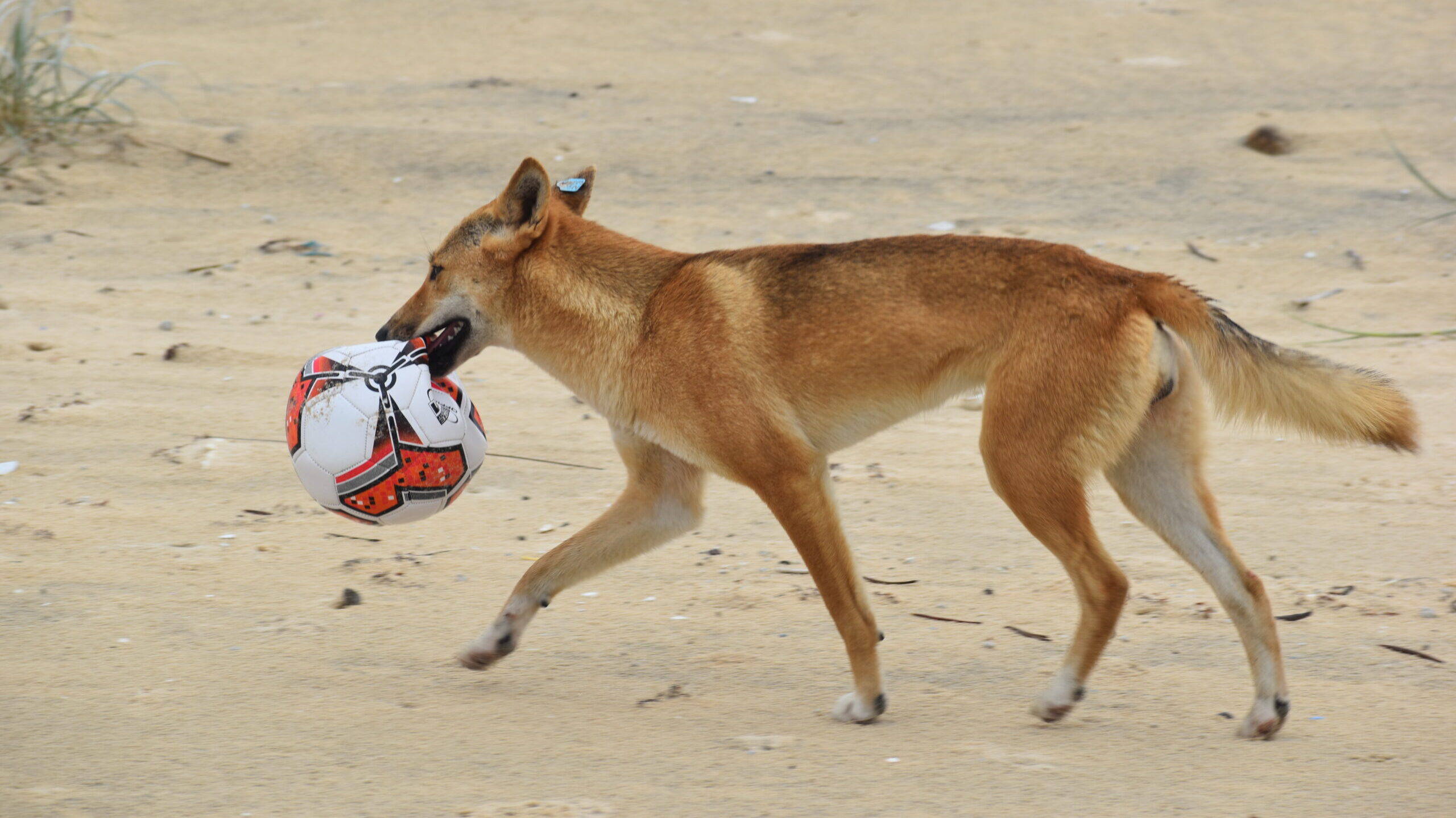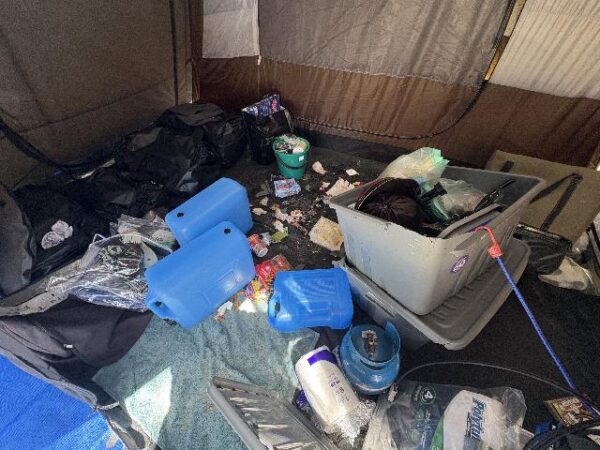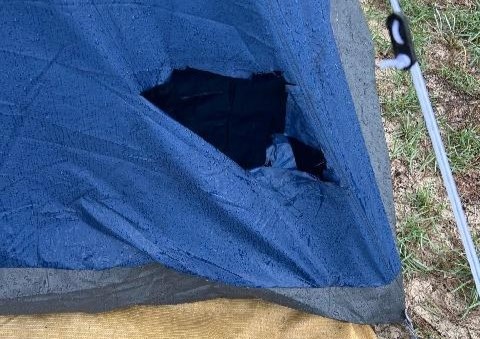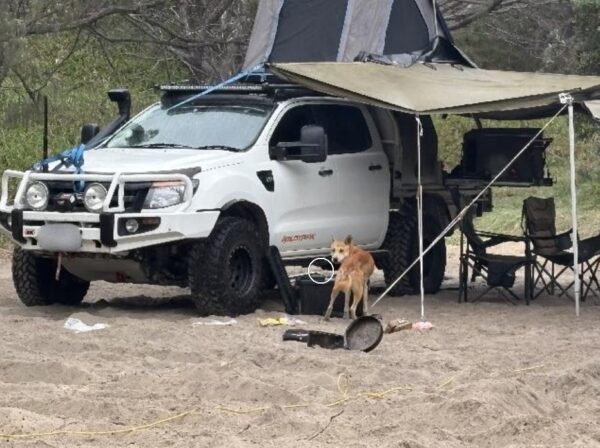WILDLIFE WATCH
Rangers have uploaded photos they have taken of damaged tents which reveal the animals’ very strong sense of smell and their capacity to scavenge for food in camping areas on the island.
The rangers say the photos show what happens when food and rubbish is incorrectly stored by campers.
Dr Linda Behrendorff said dingoes recently gorged themselves on accessible food and rubbish after they broke into a tent and began hanging around the camping area.
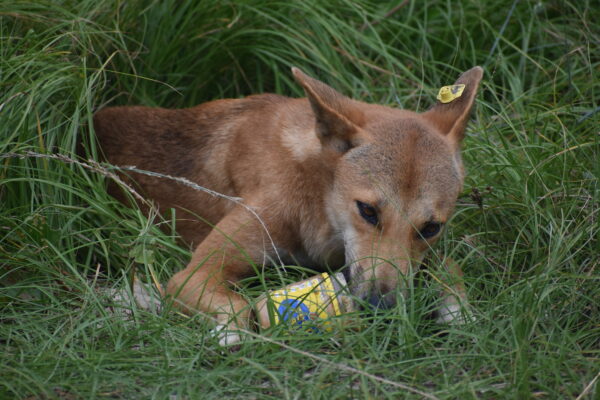
“Dingoes are opportunistic by nature and have torn open tents, chewed eskies open and knocked over bins (and) ripped rubbish bags apart,” she said.
“Wildlife scavenging around camping areas is a common occurrence. The problem with leaving food or rubbish where dingoes or other wildlife can get it makes them less fearful of humans.
“Dingoes don’t differentiate between food and rubbish, and they can start approaching people for food which puts dingoes and people at risk,” Dr Behrendorff says.
“Even in fenced areas, campers must ensure that all food and rubbish is stored in strong, secure containers and kept in an inaccessible place, such as a vehicle cabin or an enclosed ute tray.”
She says a tent or annexe is not secure and that dingoes have taken people’s belongings such as clothing, toiletries or shoes that carry the smell of food.
“Fishers should bury fish frames and unused bait at least 50cm deep in the sand to prevent dingoes digging it up,” Dr Behrendorff says.
“During the school holidays, we’re asking everyone to secure your camping area, secure your food and shoo dingoes away if they’re lingering nearby.”
Bins are provided on K’gari and camping visitors are encouraged to use bins properly and never leave bags of rubbish beside bins.
The department is also reminding visitors that it is an offence to feed dingoes deliberately or inadvertently. On-the-spot fines include $2580 for deliberate feeding and $464 for food availability.
The maximum court-imposed penalty for feeding dingoes is $26,614.
- Opportunistic feeders: They will eat a wide variety of foods, including rubbish.
- Habituation: Feeding dingoes or leaving food unattended can lead to them losing their natural fear of humans and becoming familiar and habituated to human-provided food, making them more likely to scavenge.
- Food availability: There is plenty of natural food for dingoes on K’gari (Fraser). They are opportunistic predators. If food is readily available in the form of rubbish, they will likely scavenge for it, especially if it is easier to obtain than hunting.
- Never feed dingoes: It is illegal and can have serious consequences for people AND animals.
- If dingoes don’t find food at your camping area, they are more likely to hunt or scavenge for natural food.
[/dt_vc_list]

